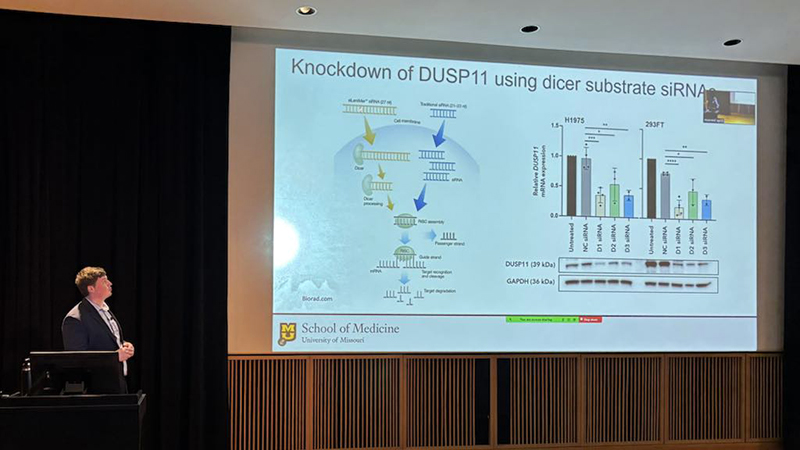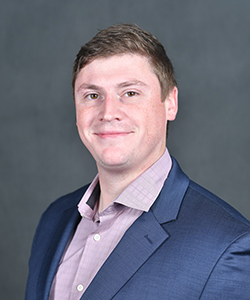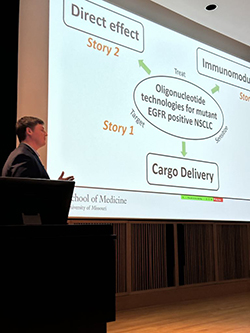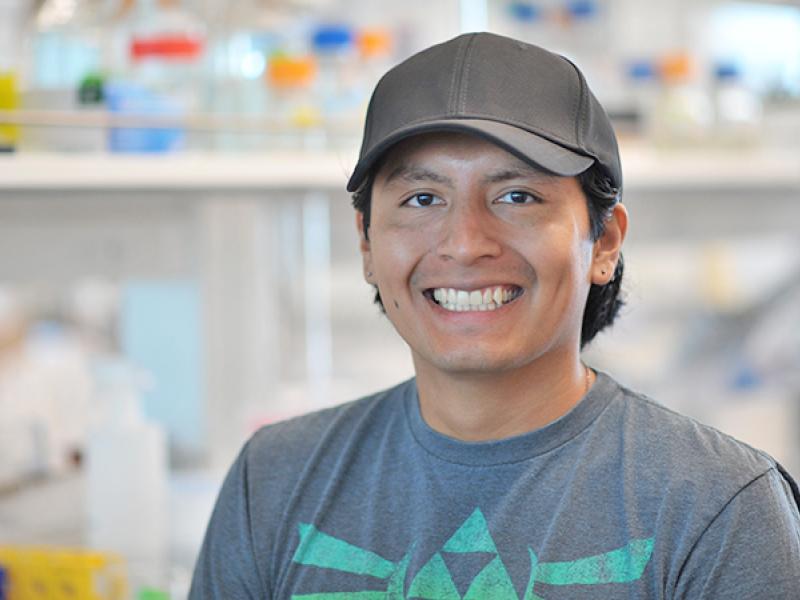
On Tuesday, April 8, Brian Thomas, an MD-PhD candidate at the University of Missouri, successfully defended his PhD thesis in the Monsanto Auditorium at the Bond Life Sciences Center. The event marked a significant milestone in his dual-degree journey and showcased the groundbreaking research he’s conducted over the past several years.

Thomas’s research focuses on the development of oligonucleotide-based strategies to diagnose and treat lung cancer—particularly tumors harboring mutations in the Epidermal Growth Factor Receptor (EGFR). His work led to the identification of anti-EGFR and anti-cMET aptamer nanostructures capable of targeting these cancer cells with high specificity. Additionally, Thomas developed a novel platform for evaluating the in vivo targeting capabilities of post-selection modified aptamers in a multiplexed fashion, enhancing the precision and potential clinical translation of these molecules.
Beyond targeting capabilities, Thomas explored the immunomodulatory power of aptamers and siRNA, identifying a new checkpoint target for potential cancer immunotherapy. He also described direct anti-cancer mechanisms of EGFR-binding aptamers, underscoring their potential not only as delivery vehicles but also as therapeutic agents in their own right.
Reflecting on his PhD journey, Thomas expressed deep appreciation for the people who helped guide and shape his research.
“I’d like to thank my mentors, Dr. Donald H. Burke-Agüero and Dr. David Porciani, who over the years have provided excellent insights into the world of science and oligonucleotide technologies," said Thomas. "Drs. Burke and Porciani pushed me to think outside the box and helped me to develop my independence and gain a unique set of skills that will supplement my career as a physician-scientist. I’d also like to thank my thesis committee members, our collaborators, and the many others for whom I had the pleasure of discussing our science. None of the works would have been made possible without their guidance and support.”

Thomas’ primary mentor, Dr. Burke-Agüero, shared his admiration for Thomas’ rare combination of scientific rigor and clinical insight.
“I’ve trained many basic scientists over the last 27 years as a faculty member, and even briefly trained a few medical students who wanted a taste of basic science research. Brian is the first MD-PhD student I have worked closely with. The experience has been incredible. Brian brought a profound sense of wanting to bridge ‘promising basic science findings’ on the one hand with ‘overcoming barriers to move these findings into the clinic’ on the other hand. He knows both worlds very well and brought a deep commitment to excellence on both fronts. It has been a privilege and a pleasure to work with Brian, and I learned a lot from him.”
With his PhD complete, Thomas now returns to medical school to complete his third and fourth years (M3 and M4), where he’ll immerse himself in clinical rotations and continue to explore how science can directly impact patient care. After graduation, he plans to apply to Pediatric Physician Scientist Training Programs (PSTPs), with the goal of specializing in Pediatric Oncology.
Thomas’ dedication to integrating laboratory discoveries with patient-centered medicine places him among a new generation of physician-scientists poised to transform healthcare from bench to bedside.



